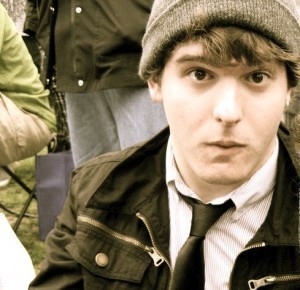“How Skeptics and Believers Can Connect”
The New York Times printed a particularly relevant op-ed today, entitled “How Skeptics and Believers Can Connect.” Author T. M. Luhrmann writes on her experience investigating “the way evangelicals learn to experience themselves in conversation with God.” In addition to discussing her own faith narrative, and how “in-your-face confrontation” had left that muddled, she address at length pluralistic cooperation. Luhrmann writes:
“Yet believers and nonbelievers are not so different from one another, news that is sometimes a surprise to both. When I arrived at one church I had come to study, I thought that I would stick out like a sore thumb. I did not. Instead, I saw my own doubts, anxieties and yearnings reflected in those around me. People were willing to utter sentences — like “I believe in God” — that I was not, but many of those I met spoke openly and comfortably about times of uncertainty, even doubt. Many of my skeptical friends think of themselves as secular, sometimes profoundly so. Yet these secular friends often hover on the edge of faith. They meditate. They keep journals. They go on retreats. They just don’t know what to do with their spiritual yearnings.”
Luhrmann considers “faith” in a very explicit, functional sense: the common actions of churchgoers necessarily mirror their common beliefs. Perhaps, then, this is why she is surprised to find that they have moments of uncertainty. Faith is a very individualistic concept–if we fall into the trap of thinking of it institutionally or traditionally, we can just as easily assume that everyone in a particular church community shares the same conviction as we can that to be a Muslim necesarrily means holding to some sort of Quranic literalism.
The writer concludes by warning that today’s contentious issues “should not be approached by drawing a line in the sand and demonizing everyone on the other side.” Here we should be careful: in conflating our political and religious differences, I think Luhrmann opens the door too widely for complacency. Certainly, a lot of people tie their spiritual convictions with their political passions, but both can be overcome if we find the common ground of human dignity and equality. It’s not about expelling those who disagree, it’s about fighting the structures–not necessarily the people–that uphold injustice and inequality.That can, and must, be done together, with everyone taking inspiration from their own individual spiritual persuasion, whatever form that may take.
You can read the rest of Luhrmann’s article here.

Walker Bristol woke up this morning and realized, to his dismay, that he is the President of the Tufts Freethought Society and the former Director of Communications for Foundation Beyond Belief . This is especially peculiar considering he grew up as a high school wrestler-pianist in North Carolina and intended to become Luke Skywalker for an undisclosed period of his life, eventually settling for a Star Wars tattoo. The Tufts Political Science and Religion departments suffer his enrollment. He writes about social activism and art in the Tufts Daily . His diet consists of hummus. He tweets nonsense on all these fronts @WalkerBristol .



